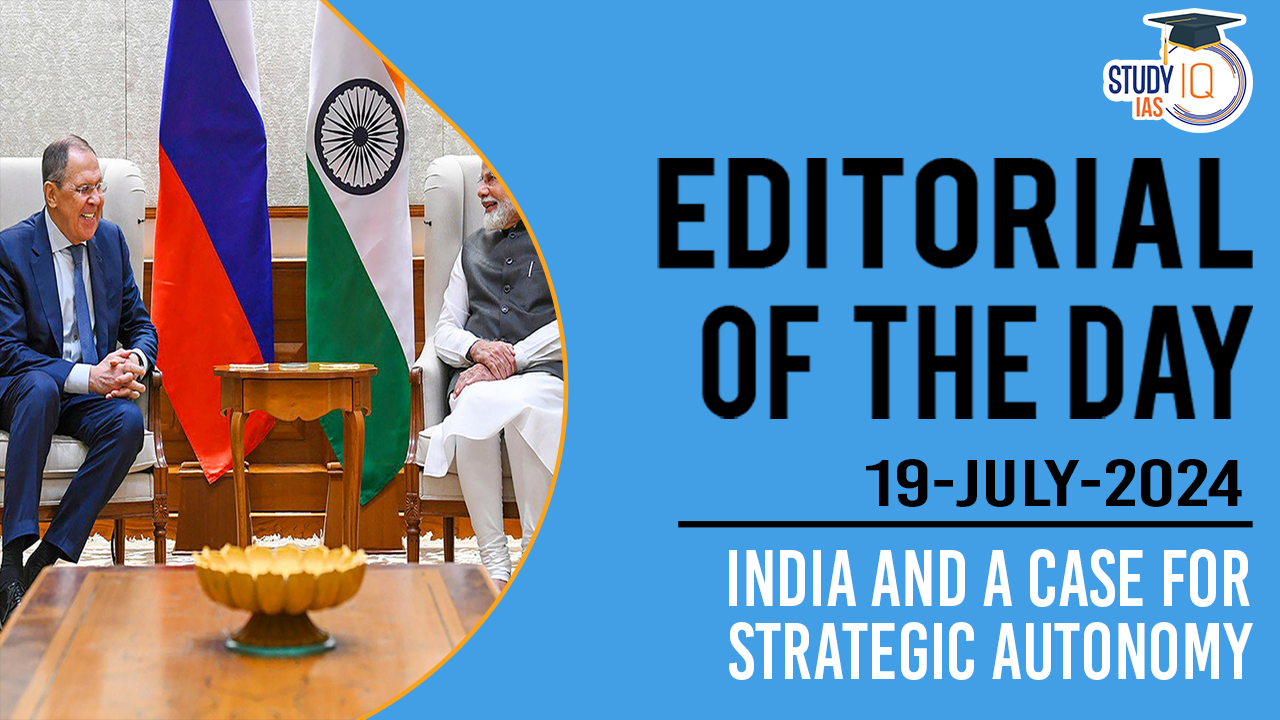Table of Contents
Context: Recently, Prime Minister Narendra Modi visited Russia.
Historical Context and Strategic Autonomy
- India’s Neutral Stance on the Ukraine War: Despite Western sanctions on Russia and support for Ukraine, India maintained its strategic partnership with Moscow, expanded energy cooperation, and refrained from condemning the invasion, advocating for an end to the war and respect for territorial sovereignty.
- Definition and Practice of Strategic Autonomy:
- Elements of Strategic Autonomy: The ability to make decisions serving national interests independently, even under pressure.
- Historical Application: Post-independence, India adopted strategic autonomy, known as non-alignment, which helped India mobilise the Third World and pursue its interests during the bipolar Cold War era.
Evolution of India’s Foreign Policy
- From Non-alignment to Multi-alignment: Initially equidistant from capitalist and communist blocs, India later built stronger ties with the Soviet Union while maintaining autonomy.
- Post-Cold War, India integrated more with the global economy and developed closer ties with the West.
- Great Power Rivalry and Strategic Autonomy: In a multipolar world, India aims to balance relationships with major powers without joining alliances, essential for maintaining its strategic autonomy.
The Russia-India Partnership
- Energy and Defence Ties:
- Energy Cooperation: Driven by economic opportunities, India’s crude oil imports from Russia surged from $2.4 billion in 2021-22 to $46.5 billion in 2023-24.
- Defence Partnership: Structural dependence on Russia for over 40% of defence imports, with 86% of Indian military equipment being of Russian origin.
- Opportunity for Equal Partnership: Russia’s ties with China present a chance for India to redefine its relationship with Russia on more equal terms, ensuring both countries consider each other’s sensitivities.
Strategic Autonomy’s Role and U.S.-India Relations
- Autonomy vs. Alliance: Strategic autonomy allows India to pursue a balanced relationship with Russia and the West, unlike countries bound by alliances, such as Germany with the Nord Stream pipeline incident.
- Positive-Sum Game in Foreign Policy: India views strategic autonomy not as isolationism but as a means to engage multiple power centres for mutual benefits. India’s energy trade with Russia stabilises global oil prices and moderates Russia’s ties with China.
- Western Misunderstanding: The West’s agitation over India’s Russia ties reflects a unipolar mindset. India seeks a multilateral global order, reflecting current geopolitical realities, rather than a zero-sum approach.


 Places in News for UPSC 2025 for Prelims...
Places in News for UPSC 2025 for Prelims...
 New Phase of Operation Chakra to Combat ...
New Phase of Operation Chakra to Combat ...
 Soyuz Aircraft: History, Design and Sign...
Soyuz Aircraft: History, Design and Sign...





















